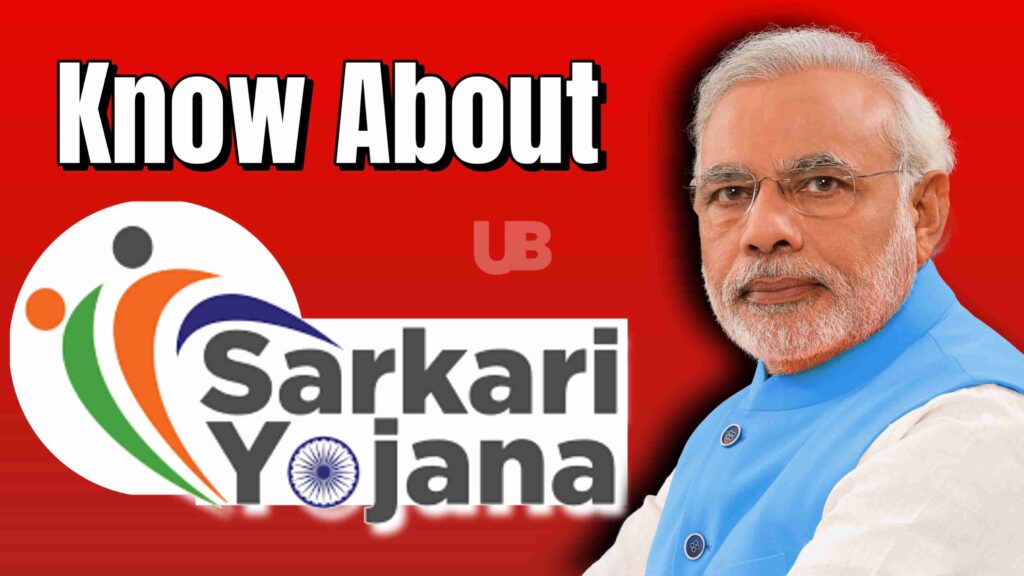
Know About Sarkari Yojanas in India
In India, the term “sarkari yojana” refers to a variety of government-initiated schemes designed to promote welfare, improve living standards, and support sustainable development. These programs span across various sectors including healthcare, housing, education, employment, and infrastructure. Understanding these schemes is crucial as they play a significant role in the socio-economic transformation of the country. Let’s delve into some of the most impactful sarkari yojanas and explore how they are shaping India’s future.
Table Of Contents
Pradhan Mantri Jan Dhan Yojana (PMJDY)
Objective: Financial inclusion by providing affordable access to financial services.
Launched in 2014, PMJDY aims to ensure access to banking facilities, financial literacy, and social security. It has facilitated the opening of millions of bank accounts with zero balance, ensuring that every household has at least one bank account. The scheme also provides a RuPay debit card with accidental insurance cover and an overdraft facility for account holders.
Impact: Over 400 million accounts have been opened, significantly increasing financial inclusion and literacy among the rural and urban poor.
Swachh Bharat Abhiyan
Objective: Cleanliness and sanitation across the country.
Initiated in 2014, this campaign aims to eliminate open defecation and improve solid waste management. The construction of millions of toilets, particularly in rural areas, has been a central focus. The campaign also promotes hygiene practices and seeks to change behavior towards cleanliness.
Impact: India declared itself open-defecation-free in 2019, showcasing a massive improvement in rural sanitation and hygiene practices.
Pradhan Mantri Awas Yojana (PMAY)
Objective: Providing affordable housing for all by 2022.
This scheme targets the urban poor by providing financial assistance for the construction or purchase of homes. PMAY is divided into two components: PMAY-Urban and PMAY-Gramin, focusing on urban and rural areas, respectively. Beneficiaries receive subsidies on home loans, making housing more affordable.
Impact: Millions of homes have been constructed or are under construction, significantly improving living conditions for many low-income families.
Make in India
Objective: Boosting the manufacturing sector and creating job opportunities.
Launched in 2014, Make in India aims to transform India into a global manufacturing hub. The initiative encourages domestic and international companies to manufacture their products in India. It focuses on improving infrastructure, simplifying regulations, and fostering innovation.
Impact: Significant growth in FDI inflows and a boost in manufacturing activities, contributing to job creation and economic growth.
Digital India
Objective: Transforming India into a digitally empowered society and knowledge economy.
This program aims to enhance digital infrastructure and provide government services electronically. Key initiatives include the expansion of high-speed internet in rural areas, digital literacy programs, and the promotion of digital payments.
Impact: Increased internet penetration, improved digital literacy, and a substantial rise in digital transactions, fostering a more connected and transparent society.
Pradhan Mantri Fasal Bima Yojana (PMFBY)
Objective: Providing crop insurance to farmers against natural calamities.
Introduced in 2016, PMFBY aims to protect farmers from financial losses due to crop failure. The scheme offers low premium rates for farmers, covering various risks such as floods, droughts, and pests. It ensures timely claim settlement, providing a safety net for farmers.
Impact: Enhanced resilience among farmers, with millions of them insured, reducing the distress caused by crop failures.
Atal Pension Yojana (APY)
Objective: Providing pension benefits to workers in the unorganized sector.
APY, launched in 2015, focuses on securing the financial future of workers in the unorganized sector. It provides a guaranteed pension based on contributions made during the working years. The government also contributes to the pension accounts of eligible subscribers.
Impact: Increased social security coverage, ensuring a steady income for individuals in their old age, particularly benefiting those without formal retirement savings.
Ayushman Bharat – Pradhan Mantri Jan Arogya Yojana (PMJAY)
Objective: Providing health insurance to economically vulnerable families.
PMJAY, launched in 2018, offers health insurance coverage of up to ₹5 lakh per family per year for secondary and tertiary care hospitalization. It aims to reduce the financial burden on poor families and improve access to quality healthcare services.
Impact: Millions of families have benefited from free or subsidized medical treatments, significantly reducing out-of-pocket expenses for healthcare.
Sarkari yojanas play a pivotal role in India’s development trajectory, addressing various socio-economic challenges and fostering inclusive growth. These government schemes are designed to uplift the marginalized sections of society, provide essential services, and create a robust framework for sustainable development. Understanding and utilizing these schemes can help individuals and communities improve their quality of life and contribute to the nation’s progress.



